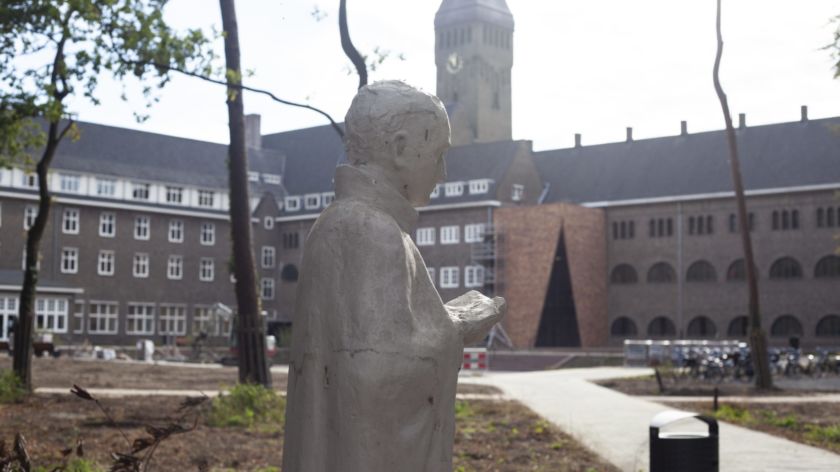| About Moral Ownership a Key Policy Governance Concept - About Caring |
|
Bishops as moral proprietors?
The case of Radboud University versus the Dutch bishops is very interesting, because it says something about the relationship between a board and its 'moral owners'. This concept from the Policy Governance system is often considered difficult to grasp. Moral ownership speaks to those on whose behalf the board carries out their duties. While somewhat complex to apply, the concept of moral owners is very helpful (if not crucial) in order to provide clear social accountability.
In a column in the Dutch paper ‘Nederlands Dagblad’, Paul van Geest introduces the concept of 'charity' in the context of good governance, and I find that a very enlightening concept to help explain what is meant by moral owners in Policy Governance.
Love Caritas is the Latin variant of the Greek word 'agapè', which denotes a form of love, that has to do with care and affection. As distinguished from 'eros', which is sensual love. The English word 'care' is directly derived from ‘caritas’ and has roughly the same meaning. 'Caritas' and 'care' help to determine to which 'moral owners' the board wants to be accountable in a moral sense. By this I mean the 'horizontal', social accountability, in addition to, of course, the formal, vertical accountability to legal owners. The word caritas helps to understand that moral ownership is about those who 'care about' the organization. Conversely, it creates the duty of the board to 'care about' the interests and values of those moral owners. Caritas therefore works, just like ordinary love, only if it is mutual.
Note that 'caring about' is not 'ensuring that'. Moral owners cannot enforce anything. After all, it is not about legal ownership. This has become very clear with a recent judgment by the Enterprise Chamber in a case regarding the contested governance of the Radboud University in Nijmegen, The Netherlands.
The Radboud University was founded by the Roman catholic church in the early 20th century to increase access to tertiary education for the catholic part of the Dutch population. At that time, Dutch society was organized in quite insulated pillars according to religion. People with protestant, catholic and socialist lead separate lives. A university based on the catholic faith was a very important step in creating equal conditions for each religious group.
However, over the course of the late 20th century, the influence of the church had waned. People didn’t go to church as regularly as they did half a century earlier. More importantly, ideas on what was considered morally acceptable with regard to health care and marriage had shifted dramatically. Only a tiny minority of the population, even of those who still considered themselves catholics, agreed with the strict interpretation of the Roman Catholic church on moral rules.
The university had moved with public opinion and had started to offer care and engage in research into contested topics as health care for pregnant women considering abortion and people that struggle with their gender identity. This caused a deep chasm between the bishops on the university board and the university management. Decision making stalled for over 10 years and the management filed a suit with the Dutch court to have the bishops removed from the board. In a seminal ruling, this request has been sustained by the judges.
This case illustrates that moral ownership is not something that can be enforced nor demanded. It is up to the board to decide who it sees as the moral owners of the organization. However, the board will always have to account for the trust that the moral owners have placed in them. The board will do this from the point of view of 'care'. Because, as said, the board must also care about the moral owners. But equally the board cannot force the moral owners to agree with everything.
Soft and hard What people often find difficult about the concept of moral owners is that it is 'soft'. A conclusive definition is often sought, as 'hard' as a legal owner. It is important to note that by definition there isn't a ‘hard’ definition for these moral owners. The concept of moral owner concerns that aspect of governance where human values are concerned, and which cannot be laid down in legal provisions. We know this aspect very well from daily practice. Consider for instance CEOs of social organizations who fulfill their role on the basis of personal involvement, because they find it intrinsically valuable. Of course they are paid a salary to do their jobs, but what motivates them is that they 'care about' good education, good care, good housing.
Unfortunately, it does not prevent things from going wrong. The example of Radboud University also shows this. When love (caritas) has cooled down, partners care little for each other. Then they are no longer able to nurture and blossom what they once thought important together. Here too, real life shows that it is sometimes better that partners break up their bond.
Dialogue For the board of Radboud University it means that they have to rethink who their moral owners are, if they are no longer the bishops. Who cares about the continued existence of Radboud University?
And that question is relevant for any board: which groups of people care about your organization? And vice versa: whose values do you care about, to determine what the direction of the organization should be? If you don't have that in mind, it can mean in the longer term that you no longer know what your raison d'être actually is. |




